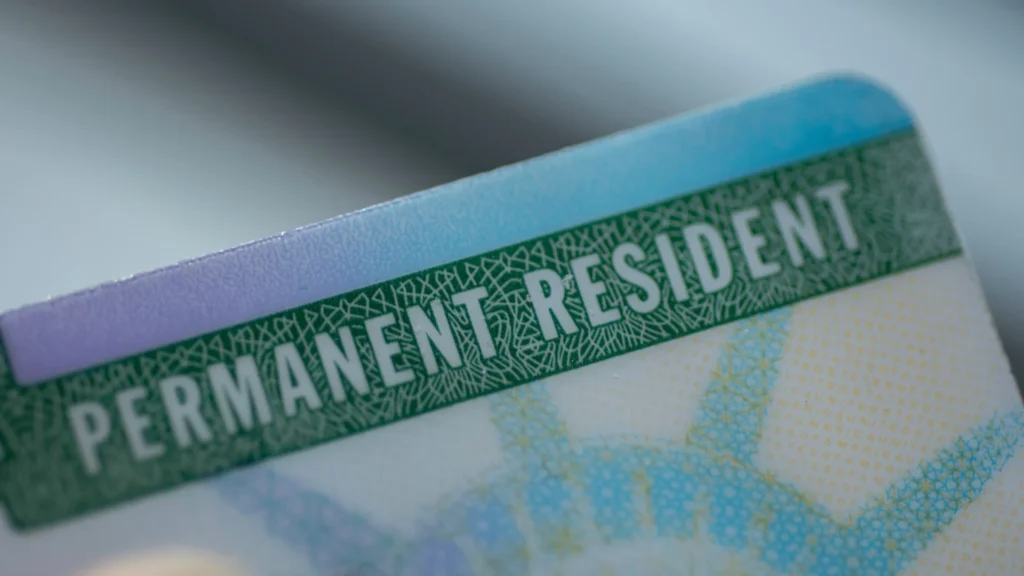The UAE is home to over 9 million expatriates, making it one of the most dynamic and diverse countries in the world. Whether you’re moving here for work, education, business, or retirement, obtaining the correct residence visa is crucial for a hassle-free stay. The Type of Residence Visa in UAE varies depending on your purpose of stay, eligibility, and long-term goals. From the common employment visa to the exclusive 10-year Golden Visa, each type offers unique benefits and requirements. This blog will guide you through the key visa options, helping you make an informed decision and navigate the application process with confidence.
What is a Residency Visa in UAE?

UAE residence visa lawfully allows living in UAE for an extended time. While a tourist visa normally only lasts a short time, a residency visa allows to remain for much longer, based on the rules of each visa type. Often, it relates to employment, owning a business, studying or family support and it helps resident’s open banks and obtain other supportive services. Everyone planning to live in the UAE, for any period, is required to get a residency visa first.
Normally, having an employer, school or close relative who is a UAE resident or citizen sponsors the process for a residency visa. After getting the visa, residents also have to get an Emirates ID and do a medical fitness test to stay legal in the country. People living under residency visas may need to renew them every 1 to 3 years and not renewing can lead to fines or having the visa cancelled. In general, the residency visa makes it possible for applicants to live, work and take advantage of what the UAE offers.
Types of Residency Visa in the UAE
For living in the UAE and apply for a residency visa, learning about the existing type of residence visa in UAE is mandatory. Below are the major UAE residence visa types along with their specific requirements and validity periods:
UAE 10-Year Golden Visa (Long-Term Investors Visa)
Investors who reach the required financial milestones can apply for and keep the Golden Visa for 10 years. The visa caters mainly to investors who have made at least AED 10 million in public investments. annual income
Requirements
- Investment of AED 10* million or more in the UAE
- Ownership of a company with capital of at least AED 10* million
- Partnership with a company with a minimum share of AED 10* million
- Investments totaling AED 10* million, with at least 60% in non-real estate sectors
- Investment funds must not be loaned and must be retained for 3 years
- Investors can include partners, provided each invests AED 10* million
Validity
Valid for 10 years with automatic renewal.
UAE 5-Year Golden Visa (Property Investor Visa)
Purchasing property worth AED 5* million or more enables getting Property investor Visa.
Requirements
- Property value must be at least AED 5* million
- Property should be owned outright (no loans) and held for 3 years
Documents Required
- Passport, previous visa, personal photo
- Property title deed, good conduct certificate
- Bank statement, DHA-approved health insurance, utility bill
Validity
Valid for 5 years and can be renewed automatically.
UAE Retirement Visa
This visa is accessible to residents 55 and older who fulfill certain financial conditions, such as savings or property ownership. It permits retirees to reside in the UAE for an extended period of time, with a 5-year validity period that may be renewed.
Requirements (any one)
- Property investment worth AED 2* million
- Savings of AED 1* million or more
- Monthly income of at least AED 20,000*
- Combination of property and savings totaling AED 2* million
Documents Required
- Passport, marriage certificate, UAE residency visa, Emirates ID
- Proof of investment, savings, or income based on chosen eligibility
Validity
Valid for 5 years and renewable.
UAE Employment Visa
UAE companies employing foreign nationals utilize this visa, where the employer acts as the sponsor. Mainland companies, free zones, or government entities are eligible to sponsor employees.
Documents Required
- Company documents: trade license, immigration card, lease agreement
- Employee documents: passport, photo, education certificate, previous visas, health insurance
Validity
- Mainland company visa valid for 2 years, while free zone and government entity visas are valid for 3 years. Both Mainland and Freezone are renewable.
UAE Company Investor Visa
This visa is issued to foreign people who own or invest in enterprises in the UAE. It permits for long-term residency and is appropriate for entrepreneurs and corporate stockholders.
Documents Required
- Company documents: trade license, immigration card, memorandum of association, partnership contracts
- Investor documents: passport, personal photo, bank statement, previous visas
UAE Family Visa
Immediate family members including spouse, children, and parents can be sponsored by residency visa holders.
Requirements
- Investors pay AED 3,000* refundable per family member
- Employees must have a minimum salary of AED 4,000* (or AED 3,000* plus rent)
- For sponsoring parents, monthly income should be at least AED 20,000*
Documents Required
- Sponsor: passport, residency visa, Emirates ID, labor contract, salary certificate, tenancy contract
- Dependents: passport, photo, marriage/birth certificates, health insurance
UAE Domestic Workers Visa
Allows residents to sponsor domestic workers like maids, drivers, cooks.
Requirements
- Sponsor must earn at least AED 25,000*/month
- Domestic worker cannot be a relative
- Sponsor must live with family and have appropriate accommodation
Documents Required
- Sponsor’s visa, passport, bank statements, tenancy contract, salary certificate
- Worker’s passport, medical fitness certificate, visa application
Validity
Valid for 1 year, renewable.
UAE Specialist Resident Visa
This residence visa is given to special talents in science, culture, arts, and innovation with ongoing employment.
Requirements
- Accreditation by relevant UAE authorities (Emirates Scientist Council, Ministry of Culture, etc.)
- Documented achievements like patents, awards, publications
- University degree from top 500 global universities, significant research contributions, or membership in prestigious organizations
Validity
10 years, renewable.
UAE Student Visa
Students enrolled in UAE educational institutions are issued with this visa. The required documents include passport, personal photo, visa fee receipt and admission letter of the student. Outstanding students may apply for a 5-year visa based on academic excellence.
Validity
Valid for 1 year, renewable annually.
Remote Working Visa
Allows remote employees and business owners to live in the UAE while working abroad.
Requirements
- Valid passport, health insurance
- For employees: employment proof with 1-year contract, minimum $5,000* monthly salary
- For business owners: proof of company ownership and income
Validity
Valid for 1 year.
Green Visa
It is a recent addition specific to highly skilled professionals, investors, entrepreneurs, and students, offering long-term residency (5 years), family sponsorship, freedom to work or start a business, and access to government services and healthcare.
Eligibility & Requirements
- Skilled employees with a BA degree and minimum AED 15,000* salary
- Freelancers with self-employment permits issued by the Ministry of Human Resources and Emiratisation and income over AED 360,000*/year
- Investors with AED 1* million investment approved by local authorities
Documents Required
- Passport, photos, medical reports, health insurance, proof of qualification/employment
Validity
5 years, renewable.
Each visa type has specific eligibility criteria and benefits, ensuring there’s a suitable path for everyone.
How to apply for a Residency Visa in the UAE
The process for getting a UAE residency visa depends on the requirement, whether it if for a visit, for employment, to invest, sponsor family or any other reason. Following steps in the guide below can make applying easier.
Secure a Sponsor
The application for a residency visa can be started only in the presence of sponsor. The choice of sponsor depends greatly on applicant’s situation.
- Employer:When applying for work in the United States.
- Family Member:Under this type, visas are for family members, namely those beings sponsored by a relative in UAE.
- Self-sponsorship:It is possible for investors, property owners or freelancers.
Among other things, sponsor will oversee the application for entry permit and residency visa. It’s important to keep in mind that after the sponsor’s visa is cancelled, there is a 30-day grace period to cancel the family residency visa.
Obtain an Entry Permit
A legal entrance to UAE is mandatory before applying for a residency visa. Generally, entry permit is needed which the sponsor can get at the ICA or the General Directorate of Residency and Foreigners Affairs (GDRFA).
Undergo a medical examination
All those who are 18 or older need to attend a medical fitness check at a UAE health center before beginning the application process. A screening for communicable diseases takes place using blood tests and chest X-rays. A medical fitness certificate s issued on clear results, that is required for getting residency visa.
Apply for Emirates ID
In order to apply for Emirates ID, one should go through the Federal Authority for Identity and Citizenship (ICP). Opening a bank account, signing contracts and utilizing healthcare are some of the uses for this important biometric card.
Submit Residency Visa Application
A residency visa application can be sent by sponsor to the relevant offices after getting the entry permit, medical fitness certificate and starting your Emirates ID application. Alternatively, one may take test at an emirate typing location online or offline, based on personal preference.
Pay Applicable Fees
Residency visas cost more or less depending on their category and the duration. Outside of the job itself, expenses can add up by paying for an exam, ID fees and health insurance. It is necessary to talk to sponsor or get information from the relevant officials to know the full schedule of fees.
Receive Your Residency Visa
Upon receiving approval, residency visa is stamped in the passport. A visa’s validity differs depending on the type; most employment visas are good for 2–3 years, but the Golden Visa can be valid for as long as 10 years.
Note: The application process may change depending on the emirate and kind of resident visa. However, it is advisable to contact the sponsor or the appropriate authorities if you want to know how much does UAE residence visa costs.
Total Cost of Obtaining UAE Residency Visas
| Visa Type | Estimated Cost (AED) |
| Employment Visa | 3,000* – 7,000* |
| Investor/Partner Visa | 15,000* – 30,000* |
| Freelancer Visa | 7,500* – 20,000* |
| Golden Visa (10 Years) | 50,000+* |
| Retirement Visa | 7,500* – 15,000* |
| Remote Work Visa | 2,300* – 3,500* |
| Green Visa | 2,280* |
| Family Visa | 1,500* – 3,000* per person |
| Student Visa | 3,000* – 5,000* |
| Domestic Worker Visa | 2,500* – 5,000* |
Additional Considerations
- Medical Examination: Required for all applicants; costs range from AED 250* to AED 700*, depending on the emirate.
- Emirates ID: Fees vary based on validity; typically, between AED 100* and AED 1,153*.
- Health Insurance: Mandatory for most visa types; costs range from AED 500* to AED 5,000* annually, depending on coverage.
- Visa Stamping and Typing Fees: Additional charges may apply, ranging from AED 100* to AED 500*.
Note: Based on specific circumstances and emirate regulations, the above cost estimates can vary.
Benefits of Obtaining a Residency Visa in the UAE

Legal Stay and Compliance
A residency visa allows you to live and work legally in the UAE, ensuring compliance with immigration laws and protecting you from penalties related to overstaying.
Work and Career Opportunities
Various visas help skilled workers, professionals and business owners get jobs, climb career ladders and add to the growth of the economy.
Business Setup and investments
Economic growth in the UAE is encouraged as foreigners come to invest and form companies which foreign capital attracts.
Family Reunification
If an expatriate has a residency visa, they can sponsor their spouse, children and parents to live in the country and stay united.
Access to Healthcare and Education
When people obtain visas, they are eligible for top healthcare and education institutions, helping their families live better.
Long Term planning and stability
For the future and Long Term Settlements being granted a residency visa helps individuals settle, buy property and make confident plans for the future in the UAE.
Cultural Integration
Residency motivates people to join the UAE’s varied society which results in more cultural understanding.
Attraction of Global Talent
Because of the many visa types available, the UAE draws experts and specialists from all over the world, lifting innovation and helping the country compete globally.
Support for National Development
The UAE uses residency visa policies to encourage investment and skilled individuals to move here which has greatly benefited the country’s growth and future.
Conclusion
On getting a UAE residency visa, one can enjoy living legally in the country, have access to healthcare and schools and find employment or invest in the market for long-term results. With special visas for professionals, investors, families and retirees, the UAE offers flexibility and strategy to people living there. Although properly planned, the process is improved by having efficient public systems. Even though the expenses are different for type of residence visa in UAE, the rewards are much greater. Residency in the UAE gives people a chance to build a stable life, expand their opportunities and join in on one of the region’s liveliest economies.
Thinking about living or starting a business in the UAE? Xpert Advisory is here to guide you every step of the way. Our visa specialists manage every step, from application to final approval, ensuring speed, accuracy, and peace of mind. Contact us today for a smooth, stress-free start in the UAE!
FAQs
What Are the Different Types of Dubai Residence Visas Available?
Dubai residence visas vary based on the type of investment, employment, or family sponsorship, each with specific eligibility criteria.
What is the process to Apply for a UAE Residence Visa?
When applying for a UAE residence visa, your sponsor will need to submit your documents, you need to complete required medical tests and fulfill specific requirements based on the visa type.
How Much Does a UAE Residence Visa Cost and What Factors Affect the Fee?
The process of obtaining a residence visa in the UAE means paying from a certain amount of AED 3,000 for an employment visa right up to AED 30,000 for investor visas, but there are other costs for medical tests, an ID and health insurance depending on your visa.


